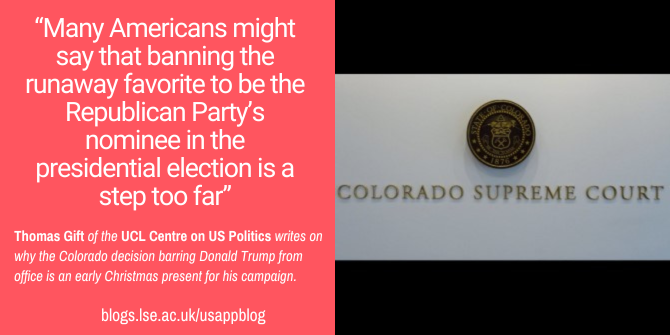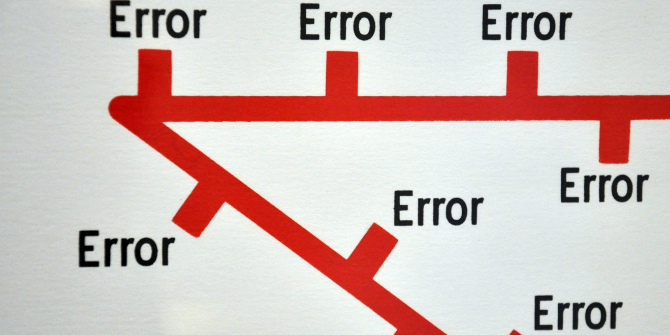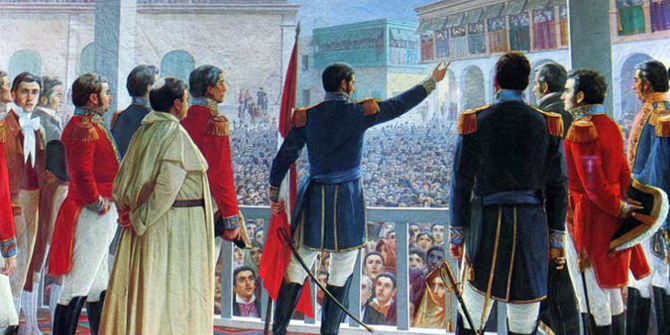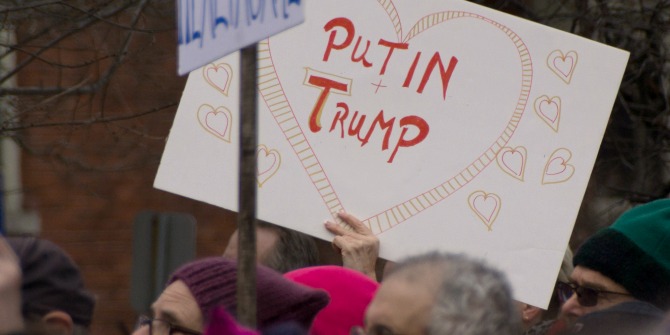 On Tuesday, the Colorado Supreme Court ruled that Donald Trump was ineligible to be on the state’s Republican presidential primary ballot due to allegedly engaging in insurrection or rebellion against the United States on 6 January 2021. In this Q&A, Thomas Gift explains the case, why it’s likely to be heard by the US Supreme Court, and how it will affect Trump’s campaign.
On Tuesday, the Colorado Supreme Court ruled that Donald Trump was ineligible to be on the state’s Republican presidential primary ballot due to allegedly engaging in insurrection or rebellion against the United States on 6 January 2021. In this Q&A, Thomas Gift explains the case, why it’s likely to be heard by the US Supreme Court, and how it will affect Trump’s campaign.
What did Colorado’s court rule, and how did we get here?
In a split 4-3 decision, the Colorado Supreme Court ruled that former President Donald Trump should be barred from the state’s Republican presidential primary ballot based on Section 3 of the 14th Amendment, which disqualifies candidates from holding public office who have “engaged in insurrection or rebellion” against the United States. The 14th Amendment was part of the so-called “Civil War Amendments,” which also include the 13th and 15th amendments enacted between 1865 and 1870 at the height of post-war Reconstruction. The insurrectionist act has never been invoked against a current or former president, although it was used against former Confederate president Jefferson Davis and his vice president Alexander Stephens to prevent them running for office. Over the last year, the case for applying this obscure section of the Constitution has been championed by prominent legal scholars like Harvard Law School’s Laurence Tribe and former federal judge Michael Luttig. This advocacy created a groundswell of support, which led to the court filings. For many observers, however, yesterday’s decision came as a surprise, especially because the claim had been rejected by courts in both Michigan and Minnesota in November.
What can we expect next?
The advocacy group Free Speech For People has indicated that it could bring similar suits in as many as 18 states. So, Trump will appeal to the US Supreme Court, which will almost certainly grant his request. Ultimately, I think the likelihood of the Supreme Court upholding the Colorado ruling is small. There are a few reasons. A cynic might say this is all political, or more specifically, all partisan. Conservatives hold a 6-3 majority on the court, and three of the justices were appointed by Trump. There are also the specifics of the law itself. Lower courts had held that Section 3 doesn’t apply to the president because he’s not an “officer” of the United States, which is a caveat contained within the provision. Therefore, even if there were a consensus that Trump engaged in insurrection (which there isn’t), under this reasoning, the amendment wouldn’t affect him. Finally, the US Supreme Court generally has a norm of trying to defer to voters on political questions like this one. So, letting the democratic process play out in the 2024 presidential election seems like the most likely scenario. That said, we’re really in unprecedented territory, so it’s hard to draw historical parallels.

“Colorado Supreme Court” (CC BY-SA 2.0) by Jeffrey Beall
Does this mean the Supreme Court will definitely play a major role in 2024?
Absolutely, which makes Trump’s Supreme Court appointments during his term that much more pivotal. Right now, there are three big cases that the Supreme Court either will hear, or is likely to hear, that could help to determine Trump’s fate. One is this 14th Amendment case, which I expect it to take up sooner rather than later. If the Court doesn’t, it could sow confusion and create lots of separate cases winding their way through state and federal judicial systems. That could be a nightmare. The second is a pending case relating to whether Trump enjoys immunity in his federal election challenge. The Supreme Court has also agreed to hear a case that will effectively decide whether two obstruction charges levied by US special counsel Jack Smith can be applied to Trump. Ideally, we’d have separation between the political and the judicial processes. But that’s not where we’re headed. Regrettably, none of this will help dispel charges that the nation’s highest court is acting as a political body. And we can only imagine what will happen if the 2024 election result is challenged.
How will this influence Trump politically?
To my mind, this is early Christmas gift to Trump, and it’s the last nail in the coffin for his GOP primary opponents. New York Times columnist Ross Douthat perhaps said it best in quipping, “Condolences to Nikki Haley’s presidential campaign.” We all know that Trump benefited from each of his successive criminal indictments. This is more of the same. It’s yet another instance that Trump can leverage to claim that “the system” is “out to get him.” So, cue all the usual language: “witch hunt,” “politically motivated vendetta,” “hoax,” “George Soros hit job,” “weaponization of law enforcement,” and the like. In this case, I don’t think Colorado’s ruling will just help Trump just with his base. Some swing voters will see him as the victim, or at least, feel that he’s being treated unfairly. Trump brought this insurrection charge on himself with his actions on January 6th. But many Americans might say that banning the runaway favorite to be the Republican Party’s nominee in the presidential election is a step too far. At the very least, skeptics will insist, it’s not good for the country’s democratic health.
- These remarks are based in part on interviews by Thomas Gift for BBC’s “Live with Lucy Hockings” on December 20.
- Please read our comments policy before commenting.
- Note: This article gives the views of the author, and not the position of USAPP – American Politics and Policy, nor the London School of Economics.
- Shortened URL for this post: https://bit.ly/3tuwtGv






